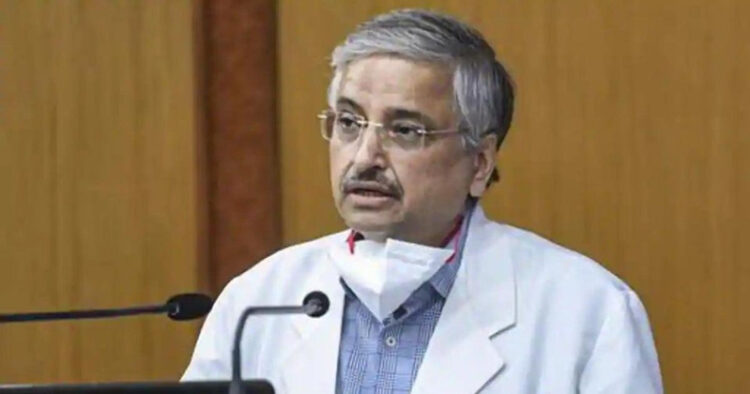AIIMS Director Dr Guleria said Omicron is a more transmissible variant and causes mild symptoms like fever, body ache, sour throat, running nose and cough.
New Delhi: All India Institute of Medical Sciences (AIIMS) Delhi Director Dr Randeep Guleria on Wednesday (December 22) said that the Omicron variant of coronavirus is more transmissible and emphasised on vaccination and COVID-19 appropriate behaviour to counter the spread of the virus.
"Omicron is a new variant and is a more transmissible variant. We need to do two things to protect ourselves, first one is to take vaccines, and the second is to follow Covid's appropriate behaviour," Dr Guleria told ANI.
AIIMS Director said that Omicron is causing mild illness, and hospitalisation is also not much. "Most of the cases are from western countries like the UK, Denmark, South Africa. Currently, it is causing mild illness and hospitalisation are not much. In terms of symptoms, more or less, it is the same and the majority of patients have mild symptoms like fever, body ache, sour throat, running nose and cough," he said.
He said AIIMS would train healthcare workers engaged in oxygen management and administration to ensure judicious use of medical oxygen.
"AIIMS is conducting training programme in terms of the academic session. It aims to empower healthcare workers engaged in oxygen management and administration with the essential knowledge and skills to ensure judicious use of oxygen," Dr Guleria added.
Union Minister of State for Health and Family Welfare Dr Bharati Pravin Pawar on Wednesday launched National Oxygen Stewardship Programme at AIIMS in New Delhi.
It envisages identifying and training at least one "oxygen steward" in each district across the country. These trained professionals would be responsible for leading the training on oxygen therapy and management in their respective districts and also support an audit of oxygen delivery and preparedness for a surge scenario.
The country has reported 213 cases of Omicron. The new variant of COVID-19 was first reported to the World Health Organisation (WHO) from South Africa on November 25.
Courtesy: ANI














Comments